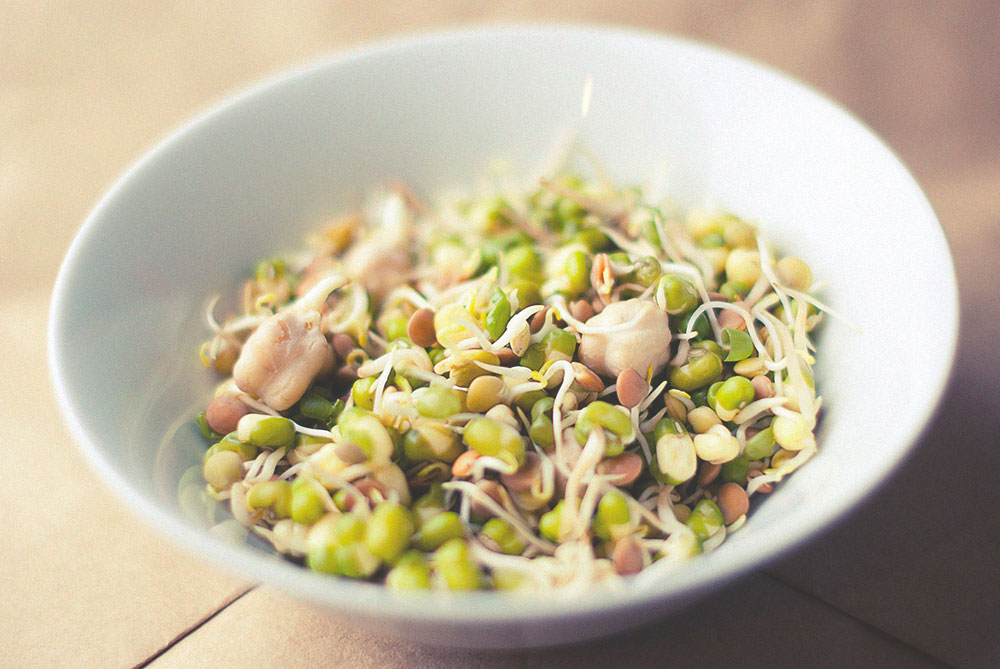Sprouting is an old trend that has recently come back on the scene. Let’s learn more about whether this trend is right for you.
BY: ANGELA STANCIL, MS, RD, LDN
The word “sprout” may draw up images of beans or alfalfa. But did you know sprouts from whole grains, nuts, and other legumes are becoming more popular?
But first, what is sprouting?
Plants are designed to prevent growth until conditions are just right. When the environment is favorable, enzymes within the plant seeds are activated to break down starch into smaller molecules that are easily digested for growth. Sprouting involves allowing the seeds to rest in a warm, moist environment for 1 to 3 days to reach a stage between seed and the new plant.
Sprouts can be consumed from a variety of different sources, and are becoming more mainstream with promising health benefits. They include:
- Grains: barley, wheat and spelt
- Legumes: lentils, peas, soy, lima and kidney beans
- Vegetables: broccoli and radishes
- Nuts: almonds, walnuts, cashews and peanuts
So what are the health benefits of sprouted plants?
Because complex molecules are broken into simpler pieces during plant growth, consuming sprouted plants is often easier on the digestive system and may be beneficial for those with grain allergies. Many people also say sprouting changes the flavor profile of certain plants. For example, sprouted grains are said to be sweeter than whole grains. This change may help make undesirable foods more appealing.
Sprouts are also thought to be richer in vitamins and minerals because the plant has digested more starch, making nutrients more plentiful. However, research has shown that nutrient content varies widely depending on the type of seeds used, conditions for sprouting, and length of time the seeds were sprouted.
Are there any risks?
The environment needed for sprouts to form is the same environment in which some bacteria thrive. Because of this, raw sprouts, like fresh produce, may carry a risk of contamination that can lead to foodborne illness. The FDA recommends that purchased sprouts be stored under refrigeration, served cooked, and not offered to children, pregnant women or the elderly.
Ready to jump on the sprouting bandwagon?
Adapted from the original article.
HEADER IMAGE: KRZYSXTOF PUSZCZYNSKI
Angela Stancil MS, RD, LDN is a Memphis-based Registered Dietitian and food enthusiast who believes all people can learn how to fit healthy, nutritious foods into their lifestyles. Through her media work, she focuses on bringing nutrition education and science to the public that is personalized and easy to understand.

